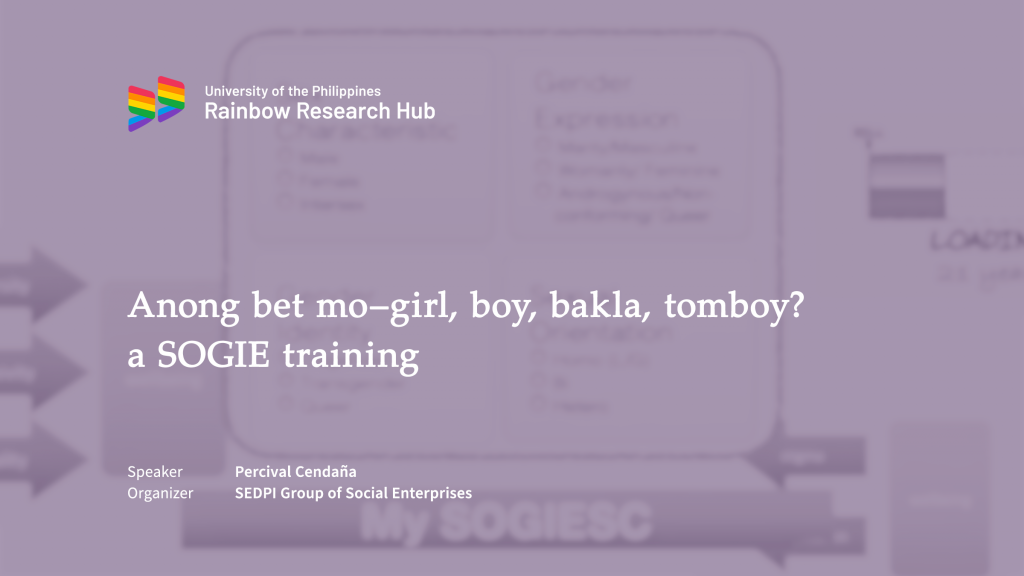
Anong bet mo—girl, boy, bakla, tomboy? a SOGIE training
This video features Perci Cendaña facilitating a discussion on sexual orientation, gender identity, gender expression, and sex characteristics. More than a lecture on the concepts of sex and gender, Perci’s talk is grounded on well-being, with diversity and inclusion as enablers of well-being and stigma and discrimination as deterrents to well-being.
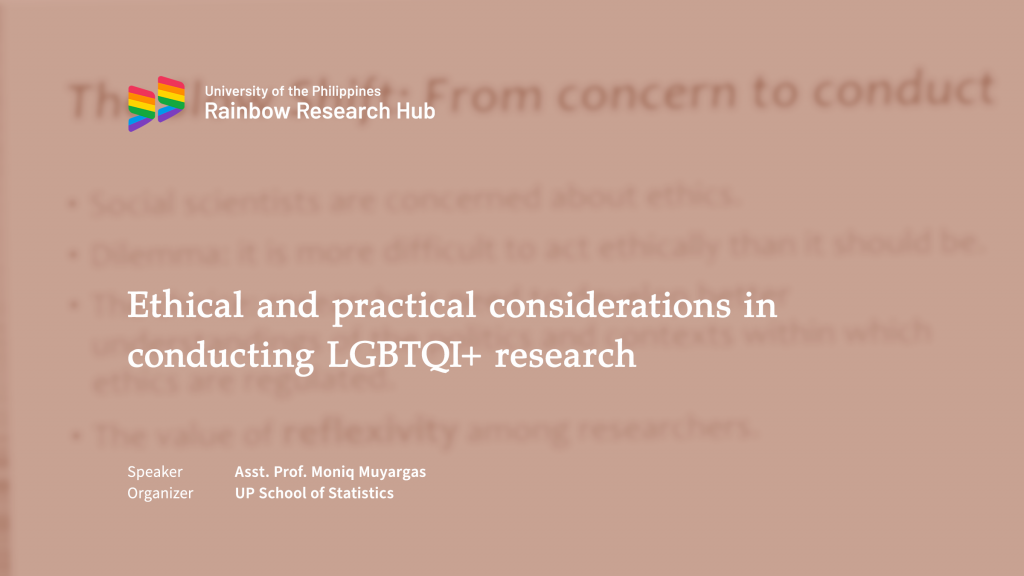
Ethical and practical consideration in conducting LGBTQI+ research
Asst. Prof. Moniq talks about ethics in the context of the social sciences, the pillars and principles of ethical research, as well as the need for reflexivity and sensitivity in understanding the social contexts both the researcher and the respondents belong to. They also discuss other things to consider when conducting LGBTQI research such as the persisting, often harsh, realities of being queer and the need for intersectionality among others.
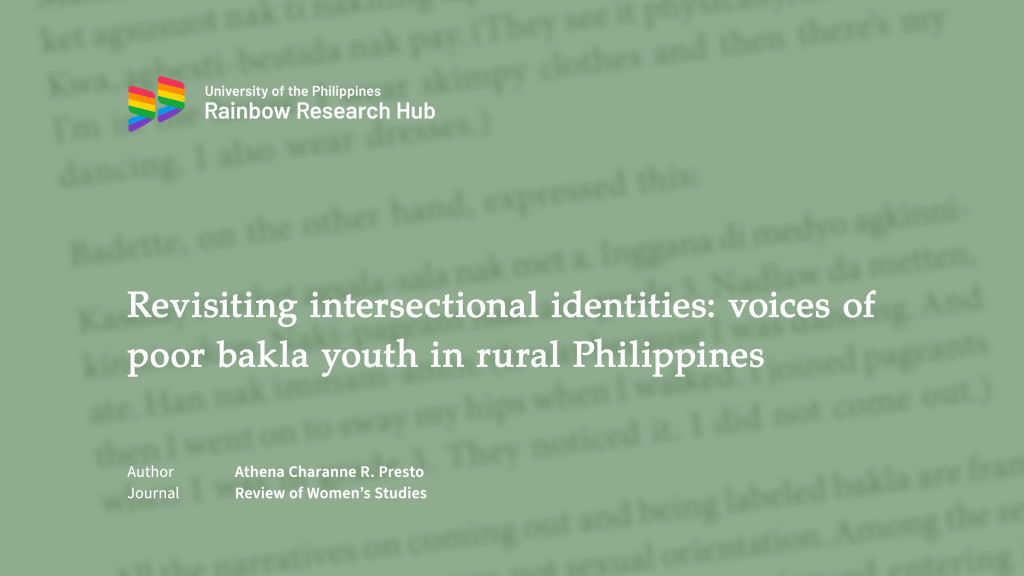
Revisiting intersectional identities: voices of poor bakla youth in rural Philippines
In this article, Ash explores the lives of poor bakla youth in a rural area. Stories of the poor bakla youth highlight unique experiences such as not having the need to come out, as well commonly shared encounters of discrimination by a macho figure.
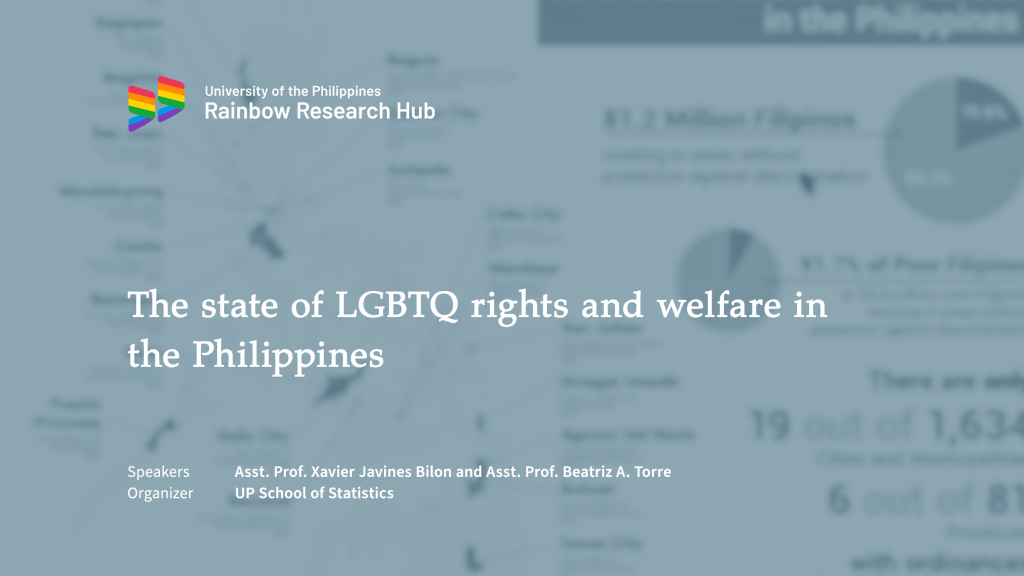
The state of LGBTQ rights and welfare in the Philippines
The moderators provide an overview of the current situation of LGBTQI rights, lives, and welfare in the Philippines. Asst. Prof. Xavier’s report centered on the criminalization, protection, and recognition of queer people and their identities in the country and Asst. Prof. Bea’s discussion zoomed in further on how LGBTQI Filipinos survive and thrive as individuals, form relationships with others, and think of themselves.
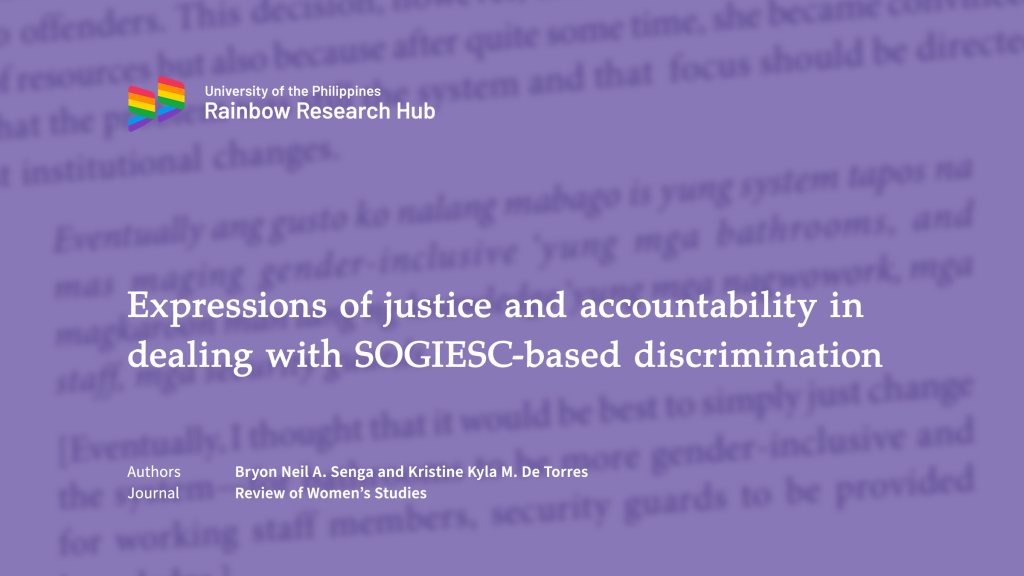
Expressions of justice and accountability in dealing with SOGIESC-based discrimination
In this article, Bryon and Kristine analyzed how victims of discrimination based on sexual orientation, gender identity and expression, and sex characteristics in the University of the Philippines Diliman express their notions of justice and accountability.
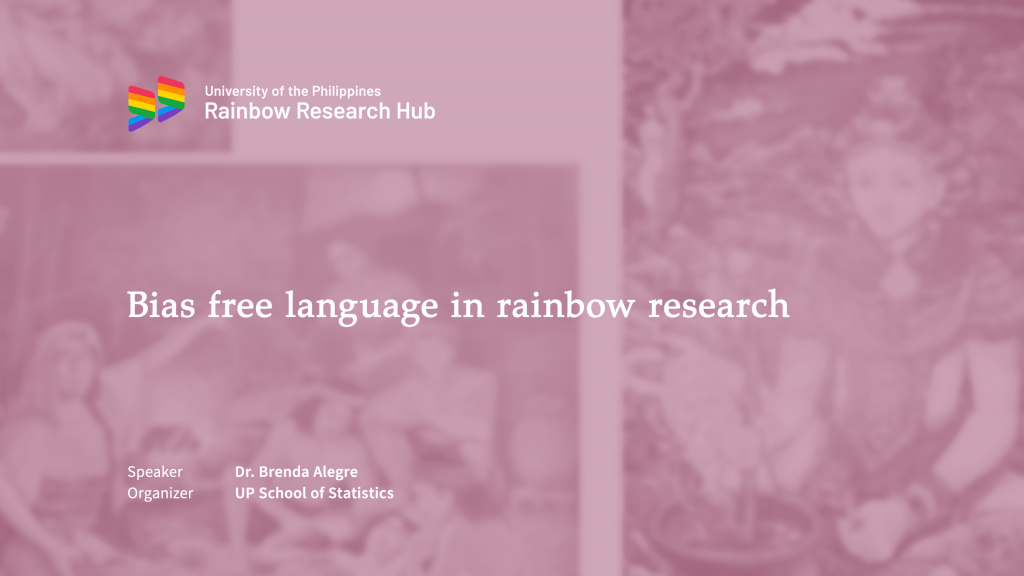
Bias free language in rainbow research
In this video, Dr. Alegre talks about biased language or the use of words that imply prejudice against people with different traits and/or identities. She broke down common words and phrases used in scholarly work and in daily life and explained how these could be construed as offensive to certain groups while recommending alternative, inclusive terminology. Finally, Dr. Alegre centers in on the overall importance of accurate, sensitive, and bias-free language in research to further promote inclusivity and intersectionality within the academe.
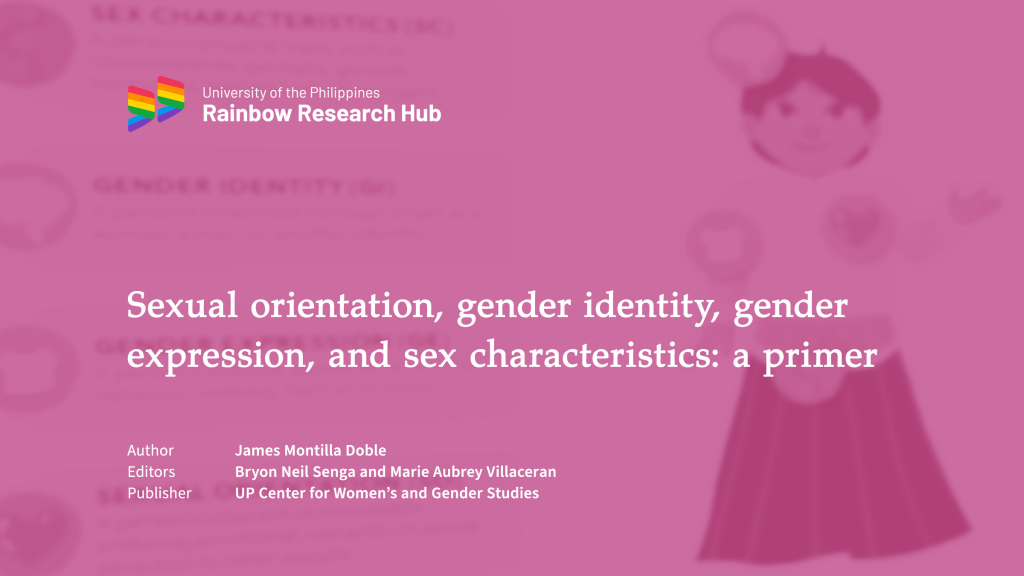
Sexual orientation, gender identity, gender expression, and sex characteristics: a primer
This primer on sexual orientation, gender identity, gender expression, and sex characteristics (SOGIESC) serves as an introduction to the SOGIESC framework. It also includes a guide to gender-affirmative terminology detailing biased or anti-LGBTQI words to avoid and to use instead of them, as well as a glossary of terms related to being LGBTQI and SOGIESC.
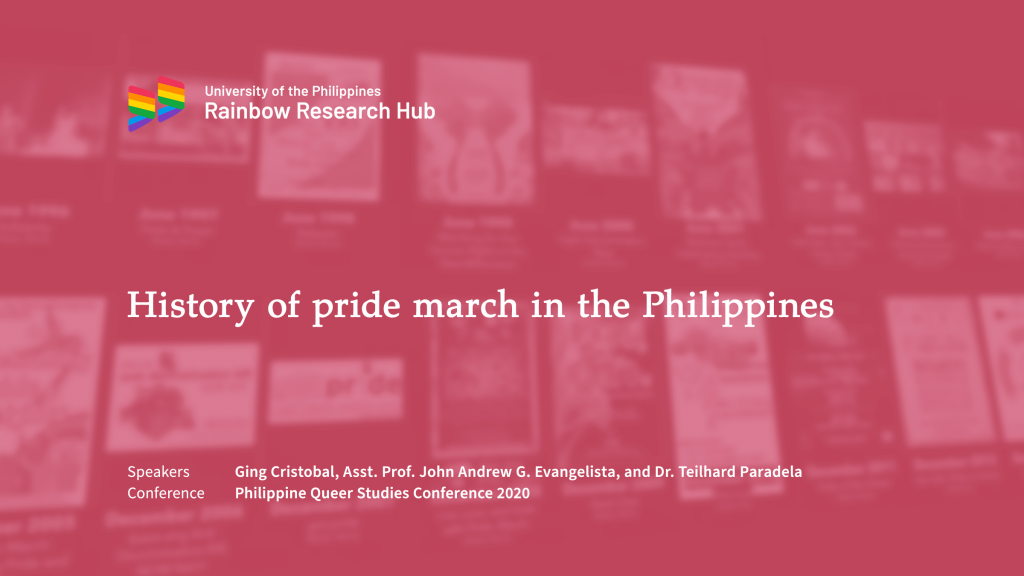
History of pride march in the Philippines
The first special session of the Philippine Queer Studies Conference traces the origins of the LGBTQI movement and Pride March in the Philippines.
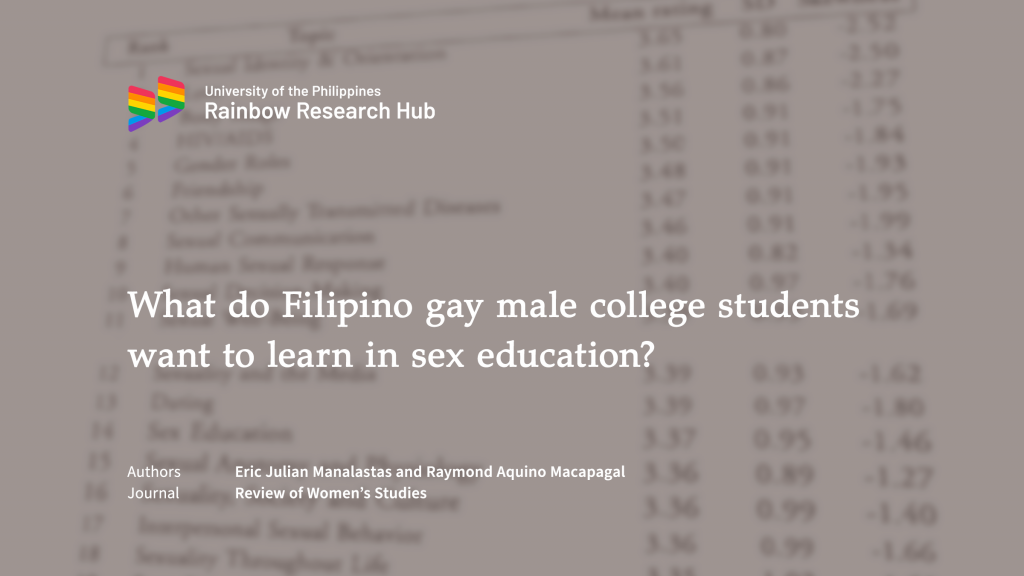
What do Filipino gay male college students want to learn in sex education?
In this article, Eric and Rae identify topics that self-identified gay/bisexual male Filipino college students would like to discuss in a course on human sexuality. Some of the topics include love, body image, HIV and AIDS, gender roles, and friendship.
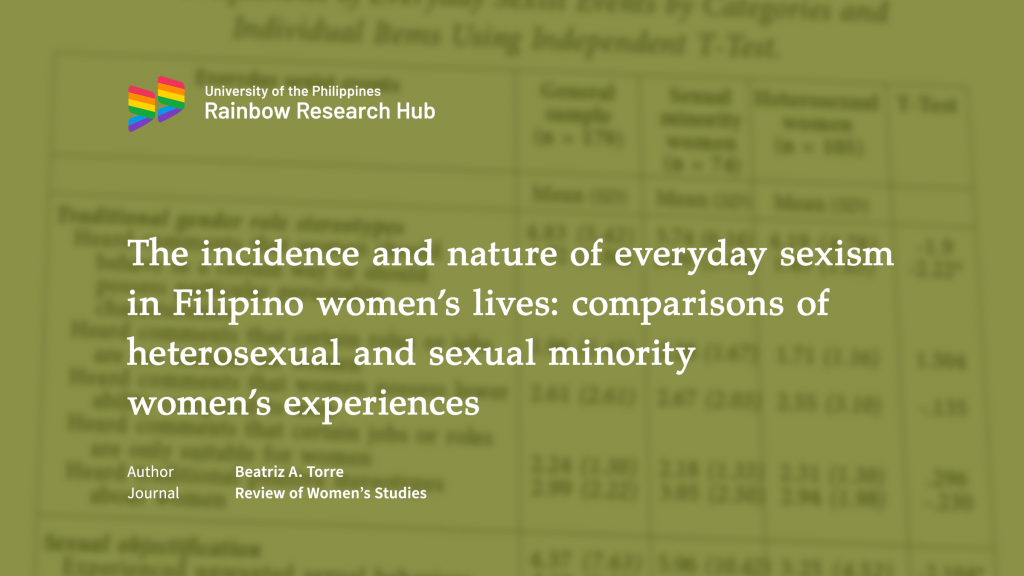
The incidence and nature of everyday sexism in Filipino women’s lives: comparisons of heterosexual and sexual minority women’s experiences
In this article, Bea investigated potential differences in the incidence and nature of everyday sexism in the lives of heterosexual and sexual minority Filipino women. Examples of everyday sexist events include comments on gender stereotypes, jokes about women or girls related to their gender, and ogling.

Measuring stigma, discrimination, and other constructs
Zy shares their reflections on conducting PhD research measuring anti-LGBT+ prejudice, including the challenges they encountered in conducting LGBT research and how they resolved them. They also underline the importance of conducting queer research by stating that the empirical data from these projects can help produce evidence-based recommendations that improve the existing conditions for the LGBT community in different spaces of society.
Coming soon.
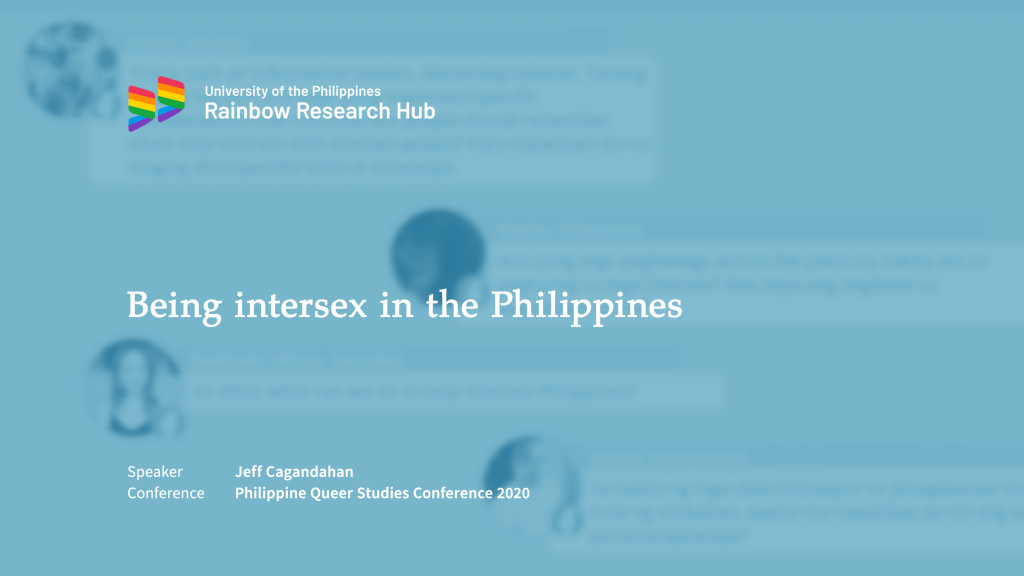
Being intersex in the Philippines
The second special session of PQSC sheds a light on intersex issues, the implications of the Cagandahan vs. Court of Appeals decision, and ways on how the public can improve social conditions for the community.
Coming soon.

Defining LGBTQI Populations
This segment, Dr. Joy discusses the dimensions and operationalization of sexual orientation, gender identity, and gender expression based on the series of Young Adult Fertility and Sexuality Studies conducted periodically from 1982 to 2013. Dr. Joy also touches upon tips and sampling techniques for LGBTQI populations and the importance of LGBTQI research to policy change in the Philippines.
